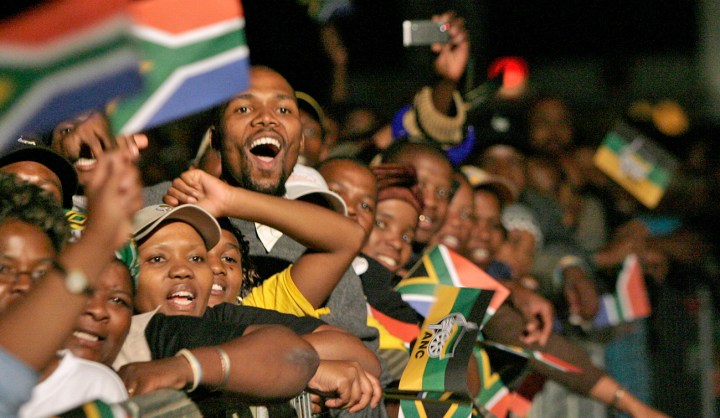South Africa
Op-Ed: Building unity to restore democratic rule

Nkandla has left the country in crisis. Now, we need to draw in a range of actors who have an interest in restoring clean government, non-violence and peace, addressing inequalities and rebuilding our democracy. By RAYMOND SUTTNER.
“When people elect a president, they don’t look for angels. They look for somebody they think will be able to run their country at that given moment.”-ANC KwaZulu- Natal leader, Senzo Mchunu.
There is a sense of crisis that pervades South African politics in the aftermath of the Public Protector’s Nkandla report. Many ANC stalwarts have wrestled with the culture of impunity surrounding questions of corruption, culminating in the audaciously irregular Nkandla expenditure. Some have called on the president to resign in the interest of the organisation and/or the interests of the country whose constitution he is sworn to uphold. Others have called on him to account and pointed to his being implicated in every major scandal of his term in office. Still others have focused on the forthcoming elections and said they can no longer vote for the ANC, suggesting that people should spoil their votes. Some previous ANC supporters have joined the Economic Freedom Fighters (EFF), and some may vote for other parties.
In recent reports the president has denied any wrongdoing or that he would pay back any monies spent on the upgrades. He, who heads the government, says he knew nothing. What does irregular spending mean? It is not simply failure to observe a rule or to follow procedures or a lapse in governance. It is misappropriation of monies contributed by all, and robs all, especially the poor. The Nkandla report shows that over-spending on Nkandla led to diversion of monies from projects that ought to have been used to provide for needs that government and Parliament were constitutionally obligated to provide for the poor.
It exacerbates the continuing inequalities that have widened since 1994. That funding is diverted into the pocket of a government official or someone close to that person means that some who may have had decent education with all necessary facilities, including safe toilets, clean water, access to electricity, healthcare and housing forfeit these basic services.
The public faces a problematic choice. The locus of power in allocating public funds remains the Cabinet, appointed by the president and deriving from elected MPs. Even those who are not appointed to Cabinet are unreliable representatives of public interest for they tend to focus on their own advancement to positions like chairs of committees and other offices.
No matter what we think of individuals who inhabit these institutions, we cannot simply say we will have nothing to do with Parliament and Cabinet: Being constitutional structures, it is from these institutions that laws are passed and actions are taken, or fail to be taken, and the lives of people are improved or worsened.
But what does that mean with elections on the horizon? If one looks at the electoral lists, we may conclude that those who will be elected are as unlikely as the existing Parliament to hold government to account and ensure that transformation is addressed.
If they will not hold government and themselves accountable, what do we do? I do not advise people on what they should do with their votes. But we can say that the vote has been shown to be insufficient or inadequate, and it will remain so, as long as it is the only basis on which we try to advance and defend constitutionalism. We need to develop additional resources and strategies to recover the freedoms that are slipping away.
It is imperative that we rebuild civic power, an alternative force that augments constitutional instruments charged with defending our democracy. We need to draw in a range of actors who have an interest in restoring clean government, non-violence and peace, addressing inequalities of wealth, questions of land distribution and the attempt to impose chiefly rule on rural people, and implementing the rights to gender equality and freedom of sexual orientation.
Those who cherish South African democracy need to draw in people from a range of sectors and organisations that may never have acted together in the past. While retaining their autonomous identities, such groups should develop a unifying vision, which binds them. That does not exclude members of the ANC or any other organisation who identify with these goals. It includes trade unions, social movements and NGOs, a range of community organisations, based in urban and rural areas, as well as business, big and small because there can be no wishing away of capital for the foreseeable future.
The workers’ movement may be a key and driving force, but it weakens its influence if it excludes others who may share an interest in restoring democracy. Insofar as we may need radical changes in this country, their achievement will require developing some type of compact with non-working class sectors, including religious bodies, professionals and big capital. Nothing in such a unified force prevents any of its members from advancing goals beyond the basic unifying vision, including socialism or other goals that are not, at this point, shared by all. It is with such thinking that we can build unity and restore democracy. DM
Professor Raymond Suttner, attached to Rhodes University and UNISA, is an analyst and professional public speaker on current political and historical questions and questions of leadership. He writes a regular column and is interviewed weekly on Creamer Media’s polity.org.za. Suttner is a former political prisoner and was in the leadership of the ANC-led alliance in the 1990s. He blogs at raymondsuttner.com.
[This article first appeared on Creamer Media’s website: polity.org.za].
Photo: ANC supporters celebrate during victory celebrations at Nasrec in Johannesburg, April 24, 2009. REUTERS/Siphiwe Sibeko
















 Become an Insider
Become an Insider